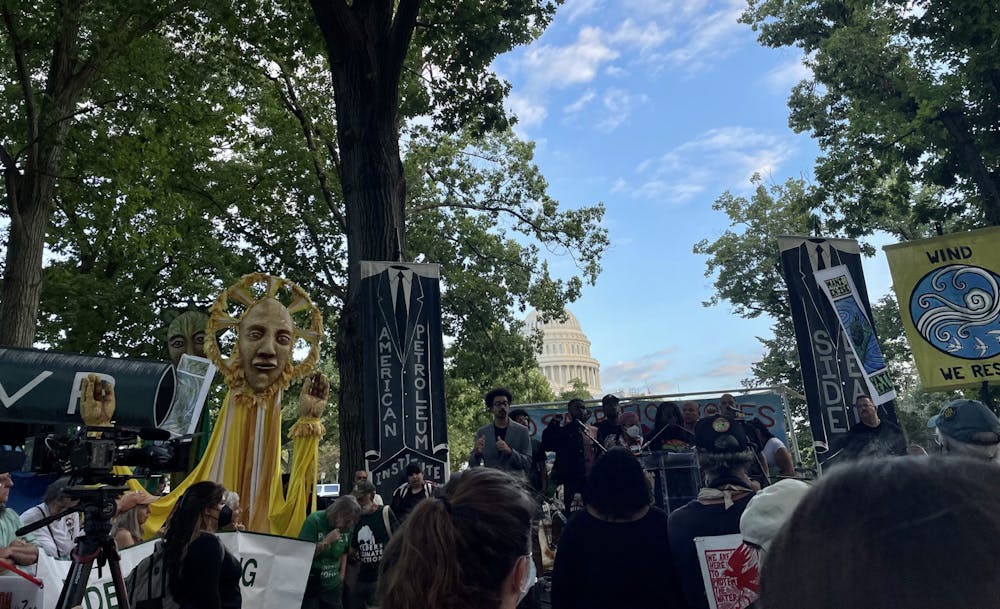Hundreds of protestors gathered near the U.S. Capitol Building in early September to protest an energy bill passed in conjunction with the Inflation Reduction Act by Sen. Joe Manchin of West Virginia. The bill would permit the construction of the Mountain Valley Pipeline, which would transport natural gas between Virginia and West Virginia.
The impending construction of the Mountain Valley Pipeline has distressed and angered communities near the project, as pipelines have historically created significant environmental damage and endangered human health through water and soil contamination and exacerbating respiratory diseases. Pipelines are disproportionately built in low-income neighborhoods and Indigenous land, creating sacrifice zones and perpetuating environmental racism.
People from across the country traveled to D.C. to join together in solidarity for those who live in sacrifice zones and call on the U.S. government to halt the construction of not only the Mountain Valley Pipeline, but dissemble Line 3, the Dakota Access Pipeline, Line 5 and countless other fossil fuel projects that have endangered communities.
These sacrifice zones have become life threatening, to the point where environmental disasters are occurring just miles away from people’s homes. Melanie Oldham, who lives in Brazoria County, Texas, testified during a speech at the protest about how her small town of 13,000 people who used to enjoy the lakes and beaches are now surrounded by chemicals, and an explosion at a BASF facility just five miles from her home occurred this summer.
Gina Peltier from the Blackbear Clan and Anishinabe Tribe in North Dakota has been on the frontlines full time protesting against Line 3 for the past few years. Peltier traveled from North Dakota to D.C. to protest the construction of the Mountain Valley Pipeline.
“I’m still facing charges to this day,” Peltier said. “One of the charges was for when I was praying on a bridge over the Mississippi River. I was not blocking traffic, I was not stopping construction.”
Peltier recalled the continuous police brutality she experienced: “I’ve been brutally arrested, I’ve seen my sisters brutally arrested and torn out of the ceremony. I’ve been run over by police, I’ve been tased, I’ve had my finger broken and I’m not the only one.”
For Peltier and her sisters who accompanied her on stage, what has been particularly frustrating is that the world has the technology and resources to eliminate the use of fossil fuels, they said. One example Peltier cited was Henry Ford’s car design from 1941 that used plastic made from hemp and spruce pulp and was fueled by ethanol made from hemp.
Peltier was also accompanied by Joye Braun, associated with the Indigenous Environmental Network, who was the first camper at Standing Rock, an Indigenous Territory that the Dakota Access Pipeline runs through.
“When we started at Standing Rock, I had no idea who was going to show up with me. I thought maybe 200. I never thought I’d wake up one day to 15,000 neighbors. You have that power. You don’t need to be able-bodied, I sit in a wheelchair,” Braun said. “You are the warriors and dreamers. You were the ones who were talked about in the 70’s. You are our ancestors’ dream come true.”
kbill@theeagleonline.com





